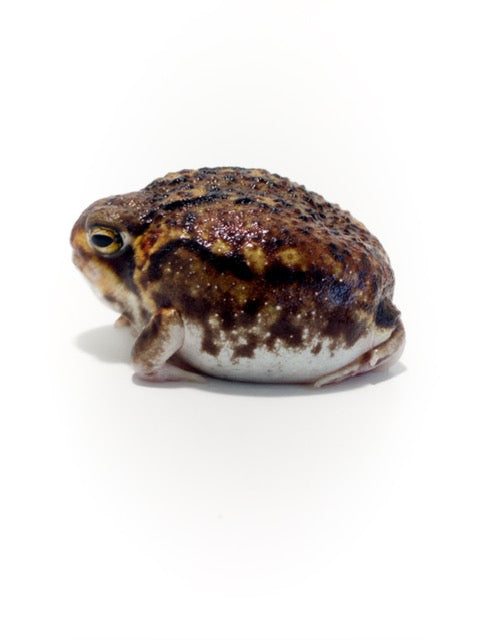Rain Frog for Sale: Unlock the Charm of Nature with Your Own Amphibian Buddy!
Rain Frog for Sale: Unlock the Charm of Nature with Your Own Amphibian Buddy!
Blog Article
Common Health And Wellness Issues in Reptiles: Signs and Solutions
In the detailed world of reptile care, comprehending the typical wellness issues that might affect these unique creatures is critical in ensuring their health. Whether it's grappling with parasitical problems, browsing dehydration issues, or dealing with skin ailments that show up in refined methods, being attuned to the symptoms and furnished with the expertise of efficient services is essential for any kind of reptile proprietor.
Respiratory System Infections
Respiratory infections in reptiles can significantly affect their overall health and need prompt interest from seasoned veterinarians. These infections are commonly brought on by germs, viruses, or fungis and can show up through symptoms such as hissing, nasal discharge, open-mouth breathing, and lethargy. In reptiles, breathing infections can be specifically testing to identify and treat because of their distinct composition and physiology. Vets typically depend on a combination of physical exams, diagnostic imaging, and laboratory tests to properly recognize the underlying reason of the infection.
Treatment for respiratory infections in reptiles typically involves a combination of supportive care, such as keeping proper humidity degrees and temperature level slopes in the unit, along with targeted medicine to address the specific pathogen in charge of the infection. It is essential for reptile proprietors to monitor their animals carefully for any indications of breathing distress and seek vet care at the earliest indicator of a problem. With prompt intervention and suitable treatment, many reptiles can recover fully from breathing infections and resume normal activities.

Metabolic Bone Condition
What aspects add to the advancement of Metabolic Bone Disease in reptiles?
Metabolic Bone Disease (MBD) in reptiles is primarily created by an absence of proper calcium, phosphorus, and vitamin D3 degrees in their diet regimen. When reptiles do not receive appropriate calcium, either via their food or appropriate UVB exposure for vitamin D3 synthesis, they go to a high danger of creating MBD. Reptiles with diet regimens low in calcium or imbalanced calcium to phosphorus proportions are particularly at risk. Furthermore, poor exposure to UVB light avoids reptiles from manufacturing vitamin D3, which is essential for calcium absorption and bone health.
Inadequate humidity levels can also affect a reptile's ability to metabolize calcium effectively. Normal vet exams, appropriate husbandry methods, and a well balanced diet are vital to prevent Metabolic Bone Disease in reptiles.
Parasitical Invasions
Parasitic infestations posture a considerable health and wellness risk to reptiles, affecting their general well-being and requiring timely vet attention. Reptiles can be influenced by different bloodsuckers, consisting of termites, ticks, inner worms, and protozoa. These parasites can trigger a series of symptoms, such as weight-loss, lethargy, skin irritability, looseness of the bowels, and even death if left untreated.
One usual bloodsucker discovered in reptiles is the mite, which can create skin anemia, anxiety, and irritation. Ticks are another external bloodsucker that can trigger and send diseases discomfort to the reptile. Interior bloodsuckers like worms and protozoa can cause digestion problems, malnutrition, and compromise the reptile's body immune system.
To identify a parasitical infestation, a veterinarian might perform fecal visit the site examinations, skin scrapings, or blood tests. Treatment often includes deworming medications, antiparasitic baths, or in severe instances, a hospital stay. Preventative procedures such as regular vet exams, correct health, and quarantine treatments for new reptiles can assist decrease the danger of parasitic problems and make certain the health of reptile pets.
Dehydration and Hydration Issues
Dehydration in reptiles can significantly affect their wellness and health, necessitating prompt treatment and ideal hydration management. Reptiles are prone to dehydration due to numerous aspects such as inadequate water consumption, high ecological temperature levels, and certain wellness conditions. Signs of dehydration in reptiles consist of sunken eyes, lethargy, loss of skin flexibility, and minimized urination. If left unattended, dehydration can result in major health concerns and even be fatal to the reptile.
To protect against dehydration, reptile proprietors need to ensure that their animals have access to tidy water whatsoever times. The water recipe need to be large enough for the reptile to soak in if required, specifically for varieties that take in water with their skin. Additionally, keeping proper humidity levels in the reptile's enclosure and supplying regular bathrooms can assist stop dehydration.
In instances of dehydration, it is critical to look for veterinary care quickly. A vet may carry out fluids either orally or via shots to rehydrate the reptile. It is vital to resolve the underlying reason of dehydration to avoid reoccurrence and ensure the reptile's overall well-being.
Skin Disorders

Verdict

Breathing infections in reptiles can substantially impact their overall health and call for punctual interest from knowledgeable veterinarians (rain frog for sale). Preventative procedures such as normal vet examinations, appropriate health, and quarantine procedures for new reptiles can help minimize the risk of parasitical problems and make sure the well-being of reptile animals
If left untreated, dehydration can lead to significant health and wellness concerns and even be fatal to the reptile.
Frequently checking your reptile for any changes in skin color, texture, or look can assist in early discovery and treatment weblink of skin disorders, promoting the general health and wellness and well-being of your scaly companion. - rain frog for sale
In conclusion, reptiles are prone to various health issues such as breathing infections, metabolic bone condition, parasitical problems, dehydration, and skin ailments.
Report this page